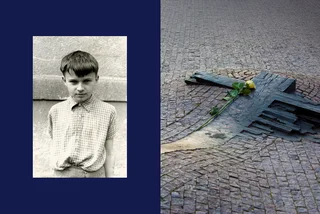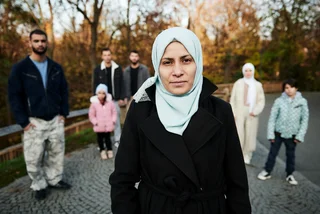If you’ve ever seen the American movie “Meet the Parents” (2000), you’ll know the media stereotype of the relationship between spouses and in-laws tends towards the negative—alternately affectionate and distrustful, caring and invasive.
For those partnered with a Czech, let me give you a little pep talk; your relationship with your in-laws doesn’t have to be antagonistic. My partner and I have been together for almost 7 years, and I know from personal experience: Once you get to the warm heart of the outwardly reserved Czechs, they are among the most generous people out there.
So how can you influence the relationship for the good of your budding Czech family?
Show your commitment to their family.
Czechs are all about family, so indicating you want to spend at-home time with your adopted Czech family will warm your in-laws to you. After all, 29% of young Czech adults between the ages of 25 to 34 still live with their parents. It’s common for families to see each other often even when children have moved out.
Michelle, a mother of three from the U.S., found this closeness difficult to get used to. “One of the biggest challenges is my in-laws’ old-school traditional thought that kids live near their parents. Having lived independently, states away from my parents for over 10 years before moving here, I felt stifled by that.”
Yet Mani, a father of two from India, saw the way Czechs “value family bonding” as similar to his own nuclear family. His Czech wife Zuzana says it was his “willingness to give a hand with anything that laid the foundation stones” of Mani’s relationship with her parents. For Mani’s part, he sees his in-laws “as my parents, rather than parents-in-law.”
“I do whatever a normal son would do for his parents. I always make myself available to support them during maintenance work in and around their house,” he says.
Of course, it’s natural for relationships with your in-laws to fluctuate. In the 13 years Michelle has lived in the Czech Republic, she and her in-laws have found a happy medium. “They gave us the house project they intended to build themselves,” she says about the property a 30-minute drive away from where her in-laws live. Now, they visit once a month to eat together, go for walks with their children, and sit in a garden full of flowers, tomato plants, and pet rabbits.
While you focus on charming your in-laws, don’t forget your partner’s other family members. Mani credits Zuzana’s sister, with whom he was already friends and grandmother for putting in a good word for him. As Zuzana says, “his naturally sociable personality did the magic.”
Open up for a cultural exchange.
Just because Mani has a great relationship with Zuzana’s parents now doesn’t mean this was always the case.
The pair, who are 11 years apart in age, met while Zuzana was preparing for her final high school exams. “At the start,” says Mani, “it was difficult due to our age and cultural differences. Zuzana’s family is Christian while I am Hindu. They only knew India through the negative media spotlights, and were worried about whether I would go back to India [and leave their daughter].”
When your in-laws aren’t familiar with your ethnic or cultural background, showing interest in their traditions and sharing your own is a great way to understand each other better.
Anna, who lives in Denmark with her Czech partner, works extra hard to make sure she keeps her mother-in-law in the loop. “When she visits Denmark,” Anna says, “I try extra hard to be friendly and talkative about subjects she likes.”
They’ve also found a way to connect without words. “I added her on WhatsApp and sometimes send her pictures from Denmark. She loves them!” Anna doesn’t speak Czech and her mother-in-law only learned Russian in school, but both have been studying English to make sure they meet in the middle.
On the other hand, Mani already spoke some Czech when he met his parents-to-be. “His interest in Czech traditions, meals, sights, and countryside warmed the initially cold-ish atmosphere,” says his wife Zuzana.
The fact that I came to the Czech Republic from the U.S. made my initial relationship with my in-laws easier because they were familiar with my politics and pop culture. In the intervening years, I have cooked traditional Jewish meals for them and taught my mother-in-law how to make banana bread, but it wasn’t until a year or two ago that my in-laws uncovered a deeper interest in my heritage.
After my father-in-law discovered Jen, a YouTuber from California who has lived in Prague for 9 years, my parents-in-law started watching her videos together. Our discussions about cultural differences, from my productivity complex to my disbelief of universal health care, often turn into friendly teasing and help my in-laws understand my quirks.
Others might take a more hands-on approach. Michelle says, “Learning to garden might endear me to my in-laws! Right now, my husband does it all.”
Find a middle ground for communication...
All internationals I spoke with named communication among the most important aspects of their relationship with their in-laws.
There is still a relatively low percentage of Czechs who can carry out a fluent conversation in English, especially among older people. Perhaps for this reason, many expats report that the language is both difficult and a barrier to settling in the Czech Republic. If you feel this way, you’re not alone!
Iva from Croatia, who has a new baby with her Czech husband, says, “The biggest benefit was to speak or at least attempt to speak the language. Having long conversations with my mother-in-law after Sunday lunch really improved the relationship as I got to know the family and their customs.”
Don’t worry, though—this doesn’t mean you have to understand everything or even apply all of the things you talk about with your in-laws.
As Czech commenters note in one of Jen’s videos, “Nitpicking is a national sport” in the Czech Republic. “Sometimes you need to have patience and compassion, and be willing to let go,” Michelle notes of her in-laws. “Nothing in my relationship with them is strained. It’s just not comfy like with my own parents.”
Julian from Slovakia, who has three young children with his Czech wife, says his in-laws share advice on everything from parenting to keeping a home—but respectfully choosing his battles has been a good strategy. Communicating with them “takes patience and sometimes deafness...and love. I often ignore their advice but still pretend I’m listening,” he says, tongue-in-cheek.
...but do keep studying your Czech!
Still, it’s no coincidence that to reach someone’s heart, you have to “speak their language,” as the saying goes. To this end, most internationals noted that learning Czech was key.
The major turning point in my relationship with my in-laws was when I was able to correctly translate “chickpea” into Czech faster than my Czech partner during Sunday lunch (it’s cizrna, for those curious). This was met with shock and delight, a major improvement from my first full sentence to them a year earlier—which, for the record was, “I don’t know how to be eating spaghetti” (neumím jak jíst špagety).
Nowadays, Czech language courses and 1:1 teachers are abundant. Showing that you are making the effort to learn Czech, no matter at what pace, is a great resource in your charm offensive arsenal.
Understand that your in-laws want the best for your partner
When I asked Iva whether her Czech in-laws had high expectations for her as an international, she said they’ve been able to iron out any cultural differences—starting with the special day itself.
“Because I come from another Slavic country, the culture is similar. True, my parents thought my wedding would be more Balkan, not the calm celebration with a buffet, modern music, and no harmonica.”
In the end, both sets of in-laws had a great time. The Czechs were happy to share their culture, and the Croatians were happy to experience a variation on the traditional “eat, then music, then eat, then music, then eat again, then more music…” Croatian wedding, as Iva describes it.
This compromise led to a great start to her and her husband’s happy life together.
Ultimately, the secret to charming your in-laws is more culturally universal than specifically Czech: put simply, being the kind of partner that makes their child happy (even if this means foregoing the harmonicas). In the end, isn’t that what all parents want?












 Reading time: 6 minutes
Reading time: 6 minutes 
































